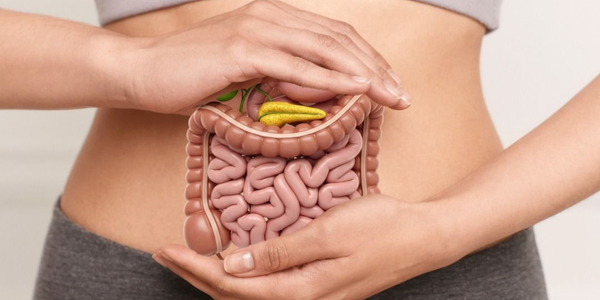Understanding Active Probiotic Cultures and How Are They a Part of Wellbeing Nutrition Products
Active probiotic cultures are trillions of good live microorganisms that thrive in your gut. These microorganisms fight off bad bacteria that are responsible for causing Digestive issues, such as irritable bowel syndrome, constipation, diarrhea, heartburn or bloating. Probiotics are crucial to maintain a healthy balance in your gut microbiome, thus leading to better digestion, immunity, and overall wellbeing.
Want to know how probiotic bacteria help improve your overall wellbeing? Read along. This blog talks about what probiotics and prebiotics are and how probiotic cultures benefit your health. You’ll also learn how probiotic cultures are a part of Wellbeing Nutrition products.
What are Probiotics and Prebiotics?
Probiotics or probiotic cultures, as stated earlier, are live microorganisms that are good for your gut. The seven core genera of microbial organisms most often used in probiotic products are Lactobacillus, Bifidobacterium, Saccharomyces, Streptococcus, Enterococcus, Escherichia, and Bacillus. Lactobacillus and Bifidobacterium are the most commonly used probiotic strains. The potency of the probiotic depends on the number of strains and the colony forming unit or CFU. CFU is the number of alive and active microorganisms in one serving of a probiotic dietary supplement. More the CFU the more potent the probiotic is. On the other hand, prebiotics are specialized plant fiber that acts as food for the good gut bacteria or probiotics. It helps stimulate growth of the preexisting good bacteria.
What is the Role of Microorganisms in your Gut?
Although your gut contains various micro-organisms like viruses, fungi, archaea, and helminths, bacteria in the majority. These bacteria help with nutrient absorption and metabolism, maintain the integrity of the gut’s mucosal barrier, protect you against pathogens, enhance digestion, and whatnot. All in all, the microorganism in your gut directly or indirectly impact your entire wellbeing.
How do Probiotic Cultures Benefit your Body?
1. Help the growth of Good Bacteria in your gut
The natural balance of bacteria in your gut can be impacted due to a medical condition, illness, poor diet, or prolonged use of medication such as antibiotics. The consequences of gut imbalance can lead to problems such as digestive issues, obesity, allergy, mental health problems etc.
Probiotic cultures include good bacteria known to benefit your when consumed in adequate amounts. The probable reason behind these benefits is the ability of probiotics to restore the natural balance of the good bacteria in your gut.
2. Help Improve Immunity
According to research, 70% of the immune system resides in the gut. That means that if you keep your gut healthy, you can also improve your immunity.
For instance, a study says that probiotics modulate pathogen-caused inflammation and improve innate immunity. What’s more, studies have reported that probiotic supplementation helps with immune stimulation.
3. Help Improve Cholesterol
Excessive consumption of deep fried, processed food will not only lead to gastric disturbances but will also increase the risk of cholesterol. High cholesterol can hinder the regular blood flow and may lead to chronic heart issues such as heart attack. However, probiotics can reduce cholesterol by binding with cholesterol molecules in the intestines preventing its absorption and also help produce certain bile acids, which help metabolize fat and cholesterol in your body. Also, a meta-analysis of 32 studies reported a significant impact on cholesterol of probiotics.
4. Help Improve Digestion
Consuming antibiotics for too long can kill the naturally occurring bacteria in your gut. It can impact your digestion negatively, promote the growth of bad bacteria, cause bloating and diarrhea. However, probiotic supplements boost the growth of good bacteria and are known to bring down the count of bad bacteria and treat antibiotic-caused diarrhea.
5. Help Improve Inflammation and Skin Health
Inflammation may contribute to a wide range of chronic diseases such as metabolic syndrome, which includes type 2 diabetes, heart disease, and obesity. Your gut microbiome has a huge impact on your skin health. Evidence suggests that there’s a link between your gut and your skin health. For instance, according to a study, probiotics can help improve skin conditions such as eczema, rosacea, and even acne.
Now that you know the benefits of probiotic cultures in your body, let’s learn how you can include them in your diet.
How to Include Probiotics in your Diet?
If you are bored having the same curd or yoghurt to get your share of probiotics, we have some interesting ways to help add probiotics or synbiotics ( a blend of prebiotic & probiotic) in your diet.
You can trust on the below Wellbeing Nutrition natural supplements that combine the safest and most effective strains of probiotic bacteria to ensure good health in some of the simple and exciting ways. Here are some of the best probiotic supplements to choose from:
Probiotic + Prebiotic Effervescent
Probiotic + Prebiotic comes with an approved blend 18Billion CFU of 6 active probiotic cultures viz. lactobacillus acidophilus, lactobacillus rhamonsus, lactobacillus casei, Bifidobacterium lactis, Bifidobacterium bifidum, and streptococcus thermophilus along with organic prebiotic fiber from chicory root which acts as food for the probiotic bacteria. This blend of approved bacterium helps:
- Improve Digestion
- Relieve Gas and Bloating
- Treat Acidity
- Neutralize Toxins
Probiotic + Prebiotic comes in the form of easy-to-consume effervescent tablets. You need to drop one tablet in a glass of cold water, wait for it to dissolve, and then you can sip a delicious green apple mint-flavored goodness for a healthy happy gut.
Melts Healthy Gut
Melts Healthy Gut comes with 10B CFU (colony forming units) bacillus coagulans probiotic bacteria that are known to benefit your gut health. Along with the probiotic, Melts Health Gut contains digestive enzymes like apple cider vinegar, papain, bromelain, and protease that can help :
- Enhance Immunity
- Prevent Acidity and Gas
- Improve Digestion
Slow Gut Health
Wellbeing Nutrition’s Gut Health with unique 2-in-1 delayed release technology provides 20 billion CFU of 4 unique lactobacillus strains encapsulated in a fast acting vegan omega oil. The 4 powerfully unique strains of probiotic bacteria are lactobacillus acidophilus, lactobacillus rhamonsus, lactobacillus casei, and lactobacillus Plantarum that can help :
- Boost Immunity
- Promote Growth of Good Bacteria
- Improve Metabolism
- Enhance Nutrient Absorption
- Relieve Constipation and IBS
Wrapping Up
Your gut is way more important than you think. It impacts your mood, digestion, and overall health just like your genes do. So, make sure to keep your gut healthy. And you can do that by including the aforementioned natural supplements in your diet.
References
Hill, C., Guarner, F., Reid, G., Gibson, G. R., Merenstein, D. J., Pot, B., Morelli, L., Canani, R. B., Flint, H. J., Salminen, S., Calder, P. C., & Sanders, M. E. (2014). Expert consensus document. The International Scientific Association for Probiotics and Prebiotics consensus statement on the scope and appropriate use of the term probiotic. Nature reviews. Gastroenterology & hepatology, 11(8), 506–514. https://doi.org/10.1038/nrgastro.2014.66
Clemente, J. C., Ursell, L. K., Parfrey, L. W., & Knight, R. (2012). The impact of the gut microbiota on human health: an integrative view. Cell, 148(6), 1258–1270. https://doi.org/10.1016/j.cell.2012.01.035
Brown, A. C., & Valiere, A. (2004). Probiotics and medical nutrition therapy. Nutrition in clinical care: an official publication of Tufts University, 7(2), 56–68. https://pubmed.ncbi.nlm.nih.gov/15481739/
Vighi, G., Marcucci, F., Sensi, L., Di Cara, G., & Frati, F. (2008). Allergy and the gastrointestinal system. Clinical and experimental immunology, 153 Suppl 1(Suppl 1), 3–6. https://doi.org/10.1111/j.1365-2249.2008.03713.x
Yan, F., & Polk, D. B. (2011). Probiotics and immune health. Current opinion in gastroenterology, 27(6), 496–501. https://doi.org/10.1097/MOG.0b013e32834baa4d
Zhang, H., Yeh, C., Jin, Z., Ding, L., Liu, B. Y., Zhang, L., & Dannelly, H. K. (2018). Prospective study of probiotic supplementation results in immune stimulation and improvement of upper respiratory infection rate. Synthetic and systems biotechnology, 3(2), 113–120. https://doi.org/10.1016/j.synbio.2018.03.001
Wang, L., Guo, M. J., Gao, Q., Yang, J. F., Yang, L., Pang, X. L., & Jiang, X. J. (2018). The effects of probiotics on total cholesterol: A meta-analysis of randomized controlled trials. Medicine, 97(5), e9679. https://doi.org/10.1097/MD.0000000000009679
Jandhyala, S. M., Talukdar, R., Subramanyam, C., Vuyyuru, H., Sasikala, M., & Nageshwar Reddy, D. (2015). Role of the normal gut microbiota. World journal of gastroenterology, 21(29), 8787–8803. https://doi.org/10.3748/wjg.v21.i29.8787


























Leave a comment